Sarah Everard’s disappearance on March 3 has put the discussion about sexual harassment, assault, and kidnapping in the spotlight in the UK. Women have been coming forward and sharing their experiences with being harassed. Meanwhile, others have been sharing the concerns they have for their safety every day.
Below you will find some of the mental checklists that women run through to stay safe, as well as their stories about what it’s like to constantly live in fear. This particular discussion was started up by left-wing activist and human rights barrister Harriet Johnson on Twitter.
33-year-old marketing executive Sarah was last seen in Clapham, in south London. Since then, a senior London Metropolitan Police officer has been arrested in a house in Kent while human remains have been found in a wooded area in the city. It has not yet been confirmed whether the remains are those of the missing woman.
After Sarah Everard’s disappearance, women have been sharing what they do to stay safe on the streets
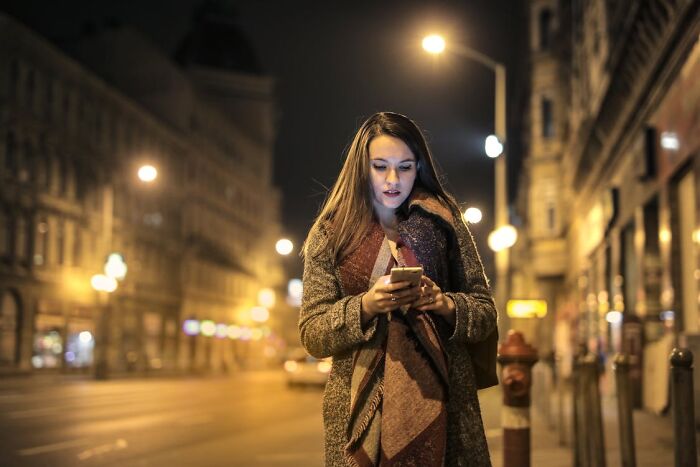
Image credits: Andrea Piacquadio
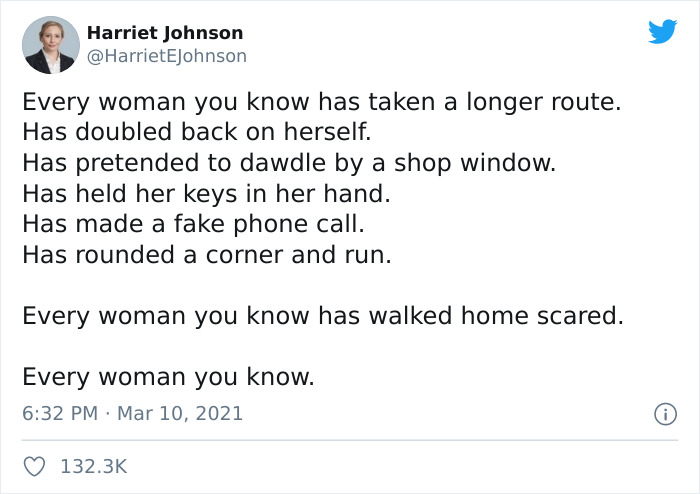
Image credits: HarrietEJohnson
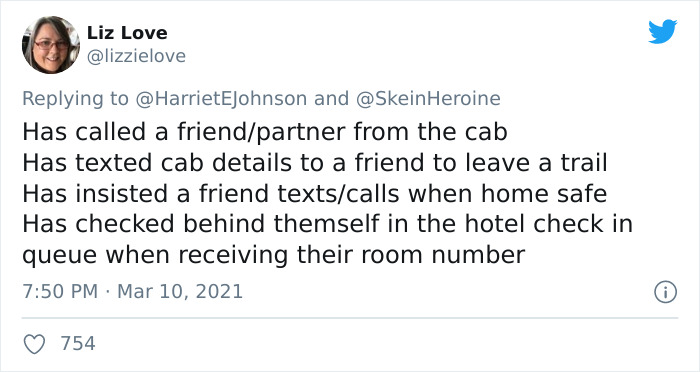
Image credits: lizzielove
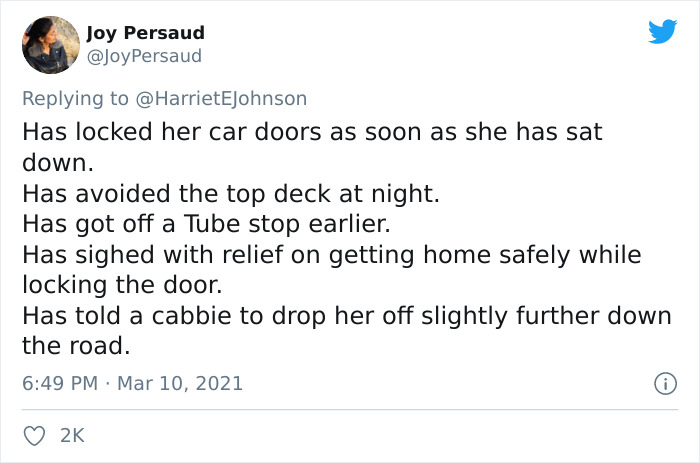
Image credits: JoyPersaud
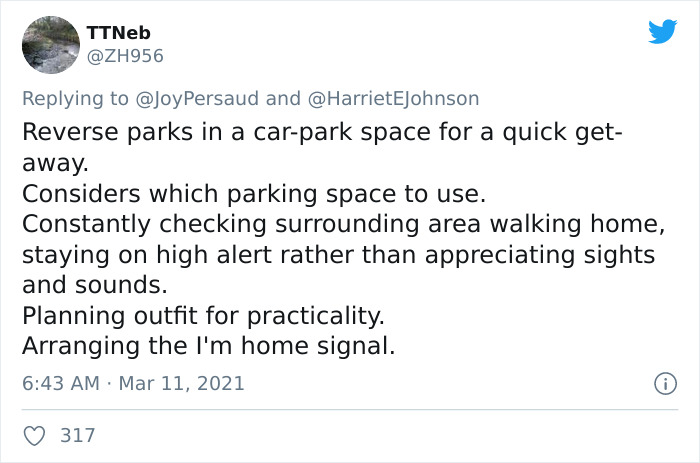
Image credits: ZH956
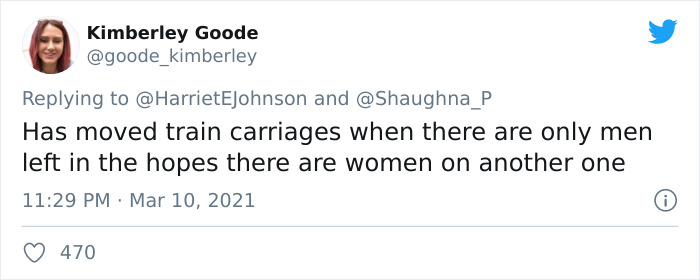
Image credits: goode_kimberley
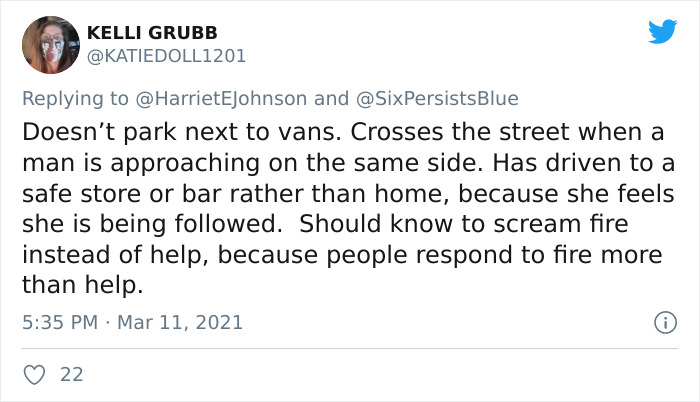
Image credits: KATIEDOLL1201
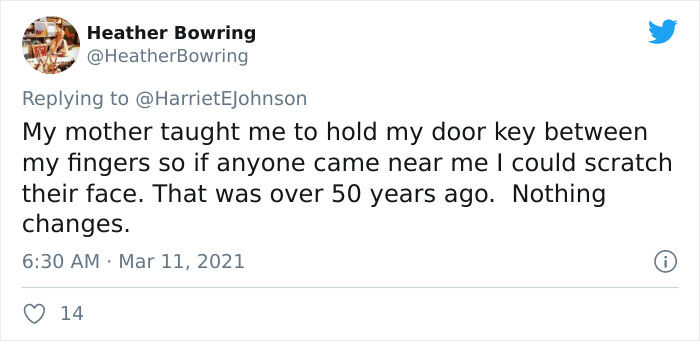
Image credits: HeatherBowring
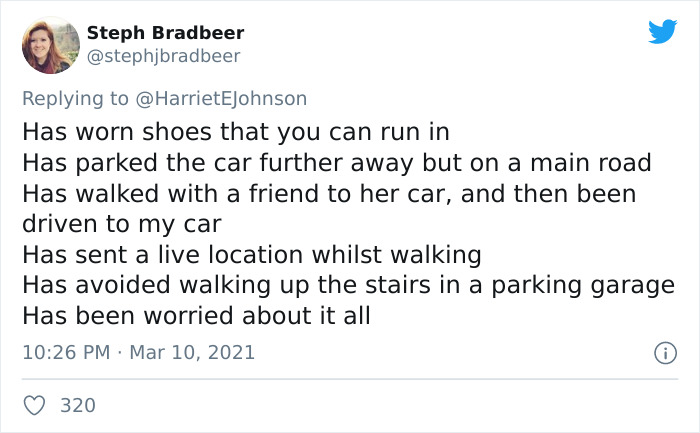
Image credits: stephjbradbeer
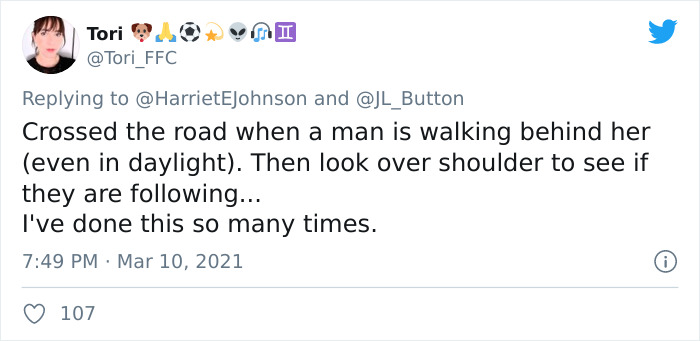
Image credits: Tori_FFC
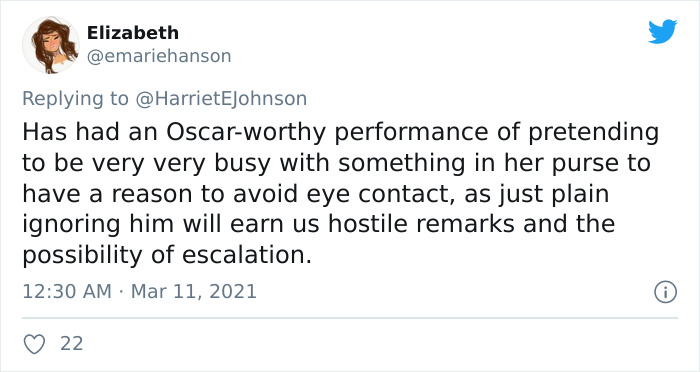
Image credits: emariehanson
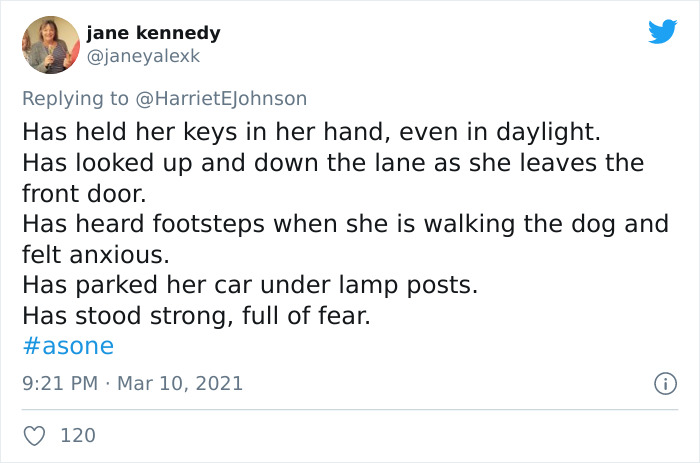
Image credits: janeyalexk
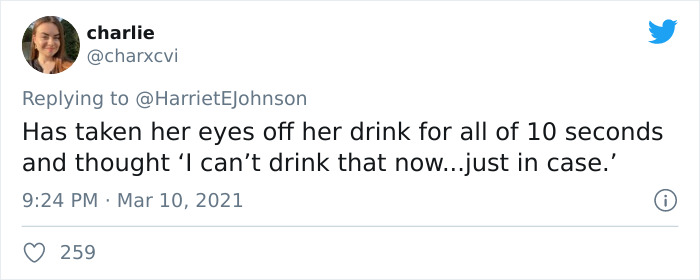
Image credits: charxcvi
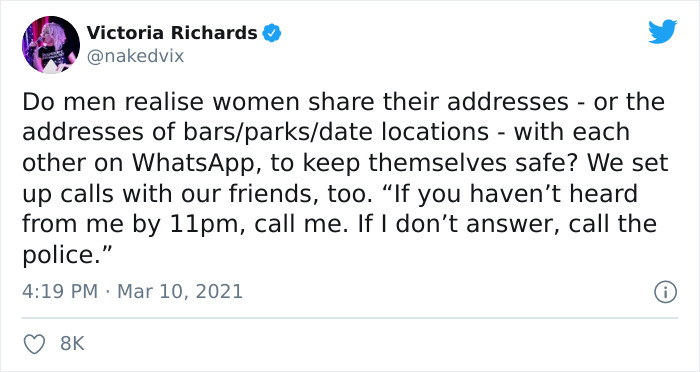
Image credits: nakedvix
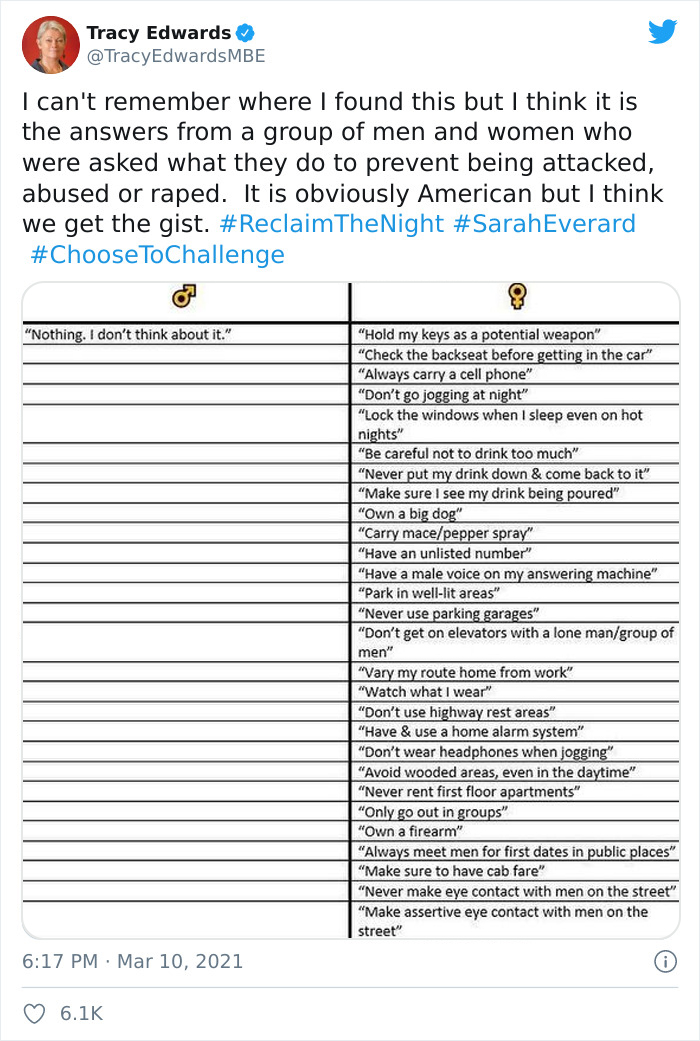
Image credits: TracyEdwardsMBE
“Sarah’s disappearance in these awful and wicked circumstances is every family’s worst nightmare,” the Commissioner of the Metropolitan Police, Cressida Dick, said.
Dick explained that it’s still “incredibly rare” for a woman to be abducted in the streets of London. However, she pointed out that she understands that many women are afraid for their safety after recent events. “I completely understand that despite this, women in London and the wider public—particularly those in the area where Sarah went missing—will be worried and may well be feeling scared.”
Sarah was spotted on doorbell video footage at around 9:30 p.m. on March 3, walking home from a friend’s house. Her family became worried and raised the alarm after she’d not been in contact with her friends since then.
On March 9, police arrested a member of the Parliamentary and Diplomatic Protection Command who is in his 40s.
“Reclaim These Streets” is organizing a series of vigils all over the UK to highlight women’s safety. However, the police have pointed out that due to Covid restrictions, it’s illegal to do so in London at the moment. The organizers of the vigils plan to take this to the High Court.
Some women have also shared their own experiences being harassed and assaulted
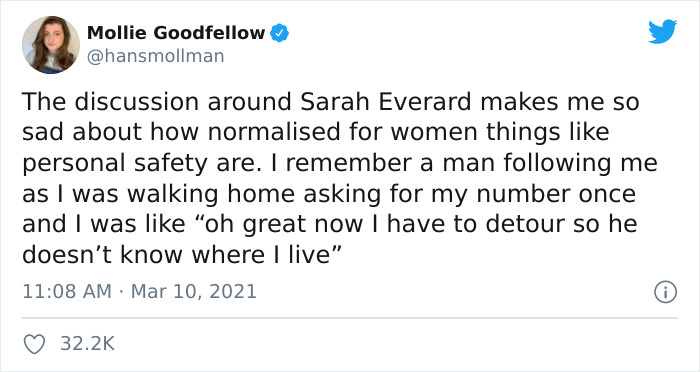
Image credits: hansmollman
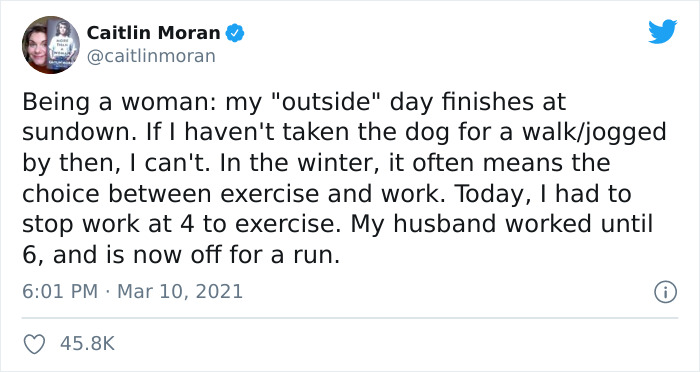
Image credits: caitlinmoran
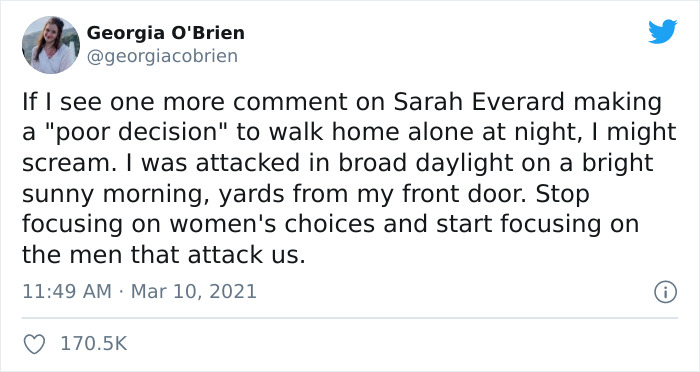
Image credits: georgiacobrien
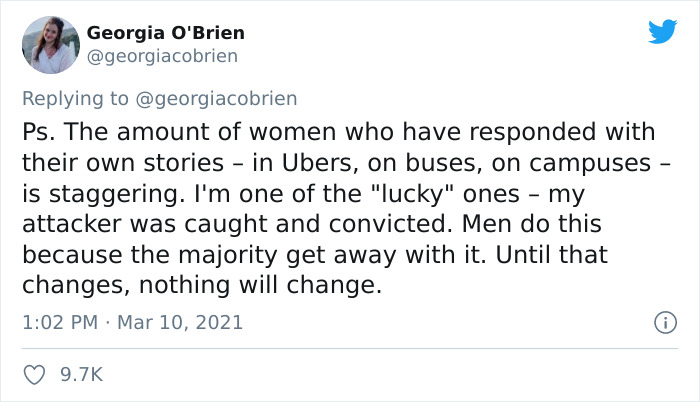
Image credits: georgiacobrien
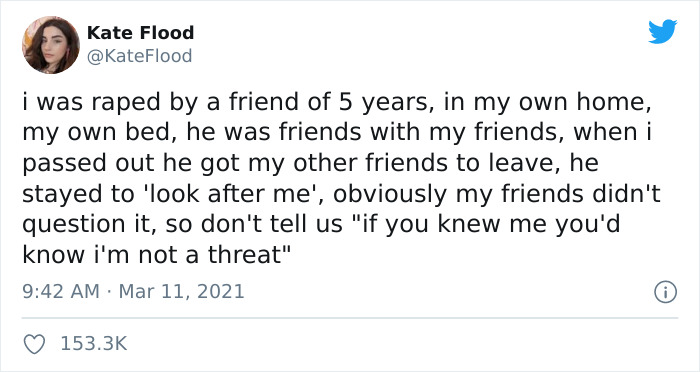
Image credits: KateFlood
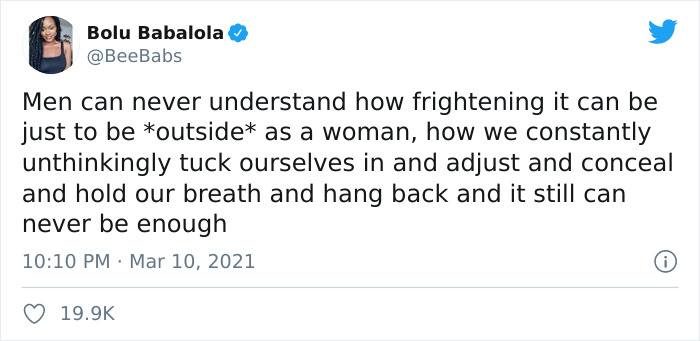
Image credits: BeeBabs
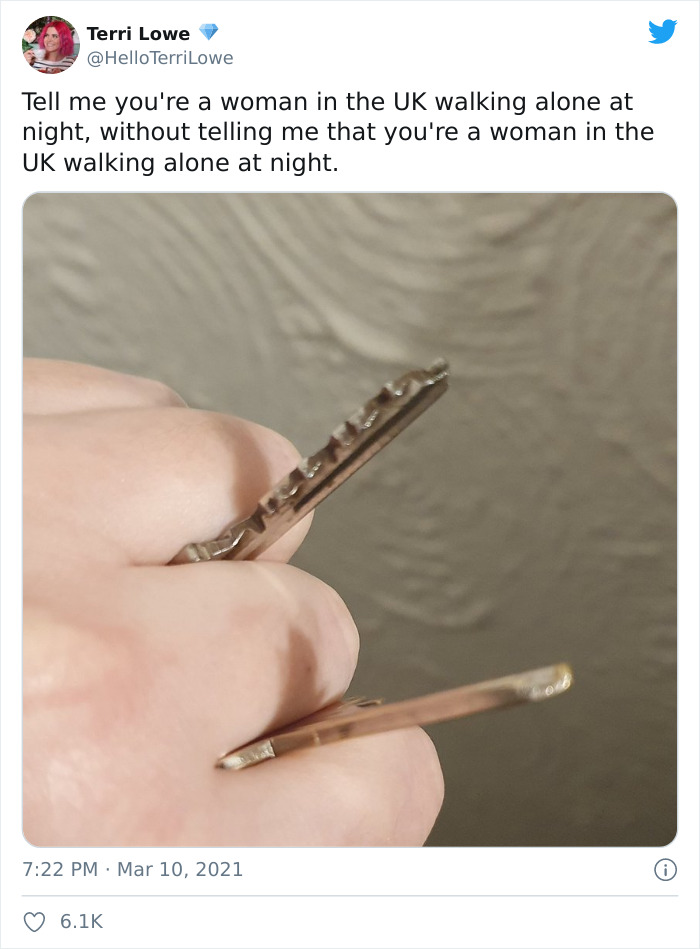
Image credits: HelloTerriLowe
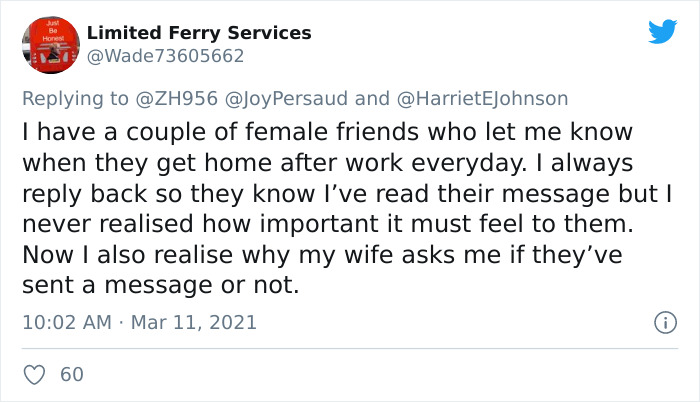
Image credits: Wade73605662
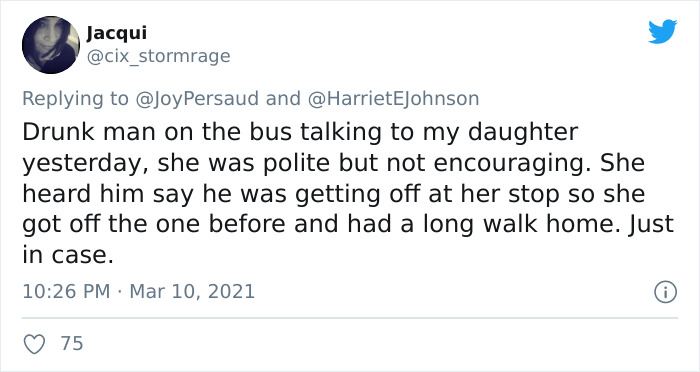
Image credits: cix_stormrage
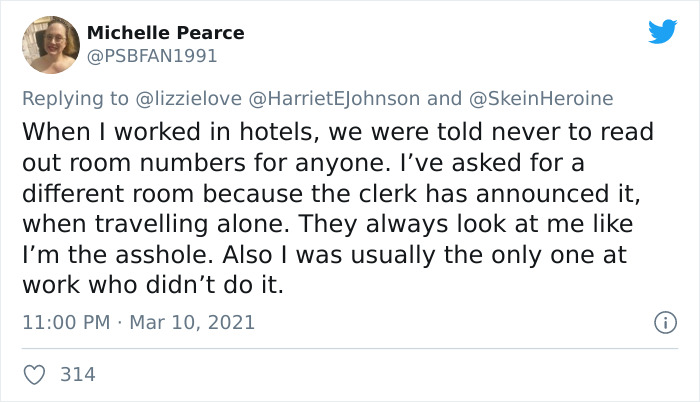
Image credits: PSBFAN1991
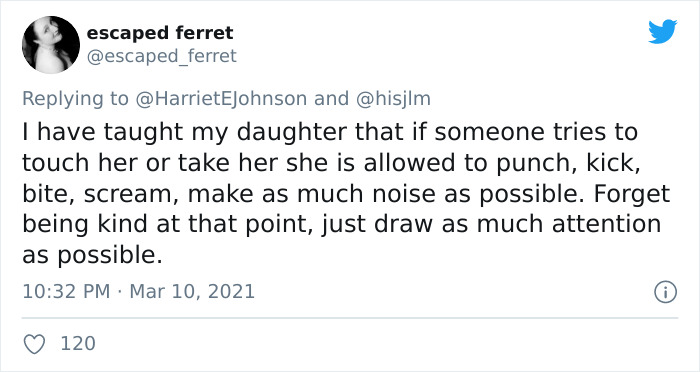
Image credits: escaped_ferret
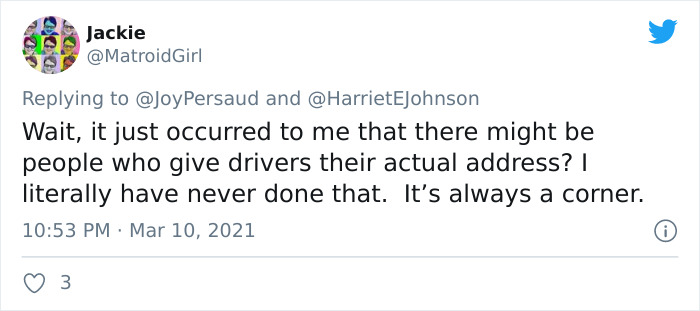
Image credits: MatroidGirl
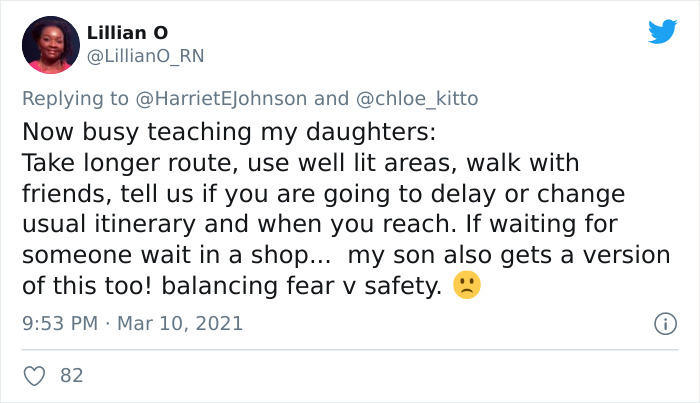
Image credits: LillianO_RN
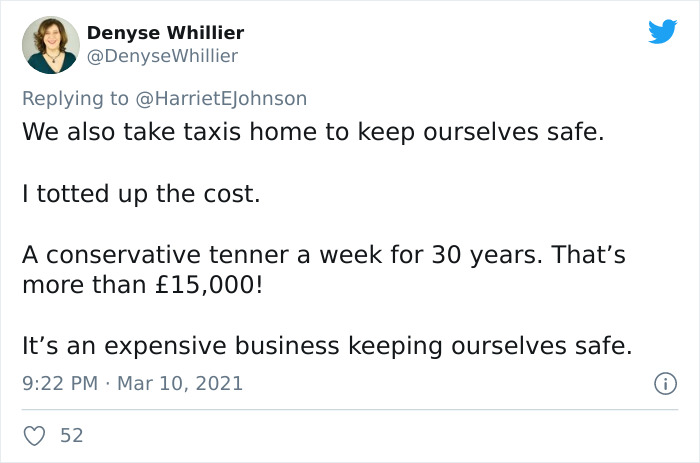
Image credits: DenyseWhillier
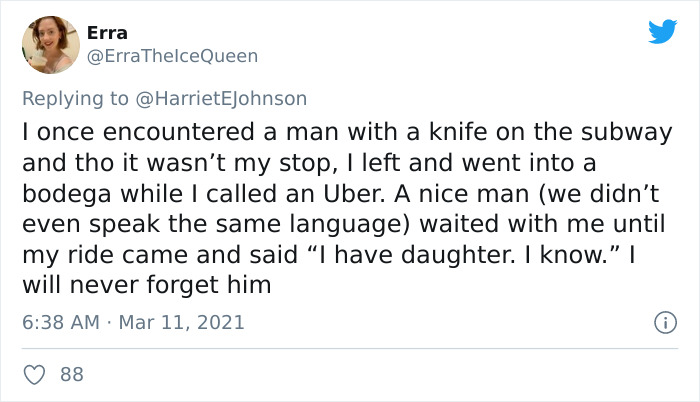
Image credits: ErraTheIceQueen
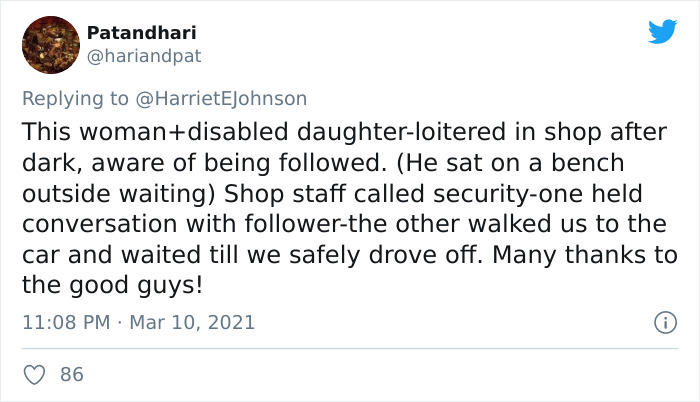
Image credits: hariandpat
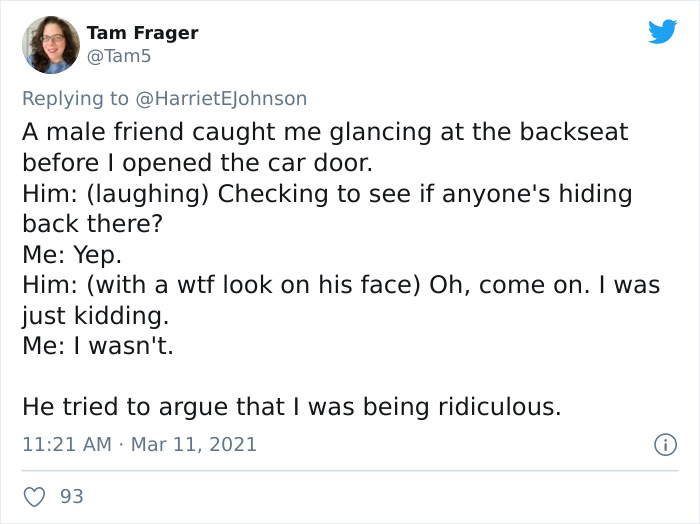
Image credits: Tam5
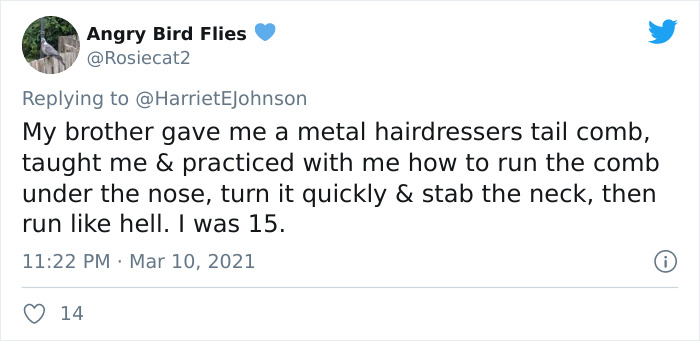
Image credits: Rosiecat2
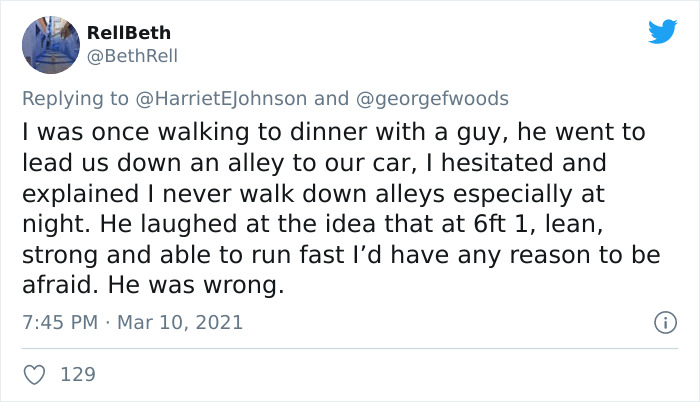
Image credits: BethRell
In a previous interview, Bored Panda spoke about street harassment with Emily May, the Co-Founder and Executive Director at ‘Hollaback!’ that aims to end harassment in all of its forms.
“Street harassment is sexual, gender-based, and bias-motivated harassment that takes place in public spaces like the street, the supermarket, and the social media we use every day. At its core is a power dynamic that constantly reminds historically subordinated groups of our vulnerability to assault in public spaces. Street harassment can happen to anyone, but disproportionately punishes women, girls, LGBTQ+ people, and other marginalized groups for being themselves in the world,” May said.
“Street harassment is on a spectrum of gender-based violence. At one end of the spectrum, we have examples like inappropriate gestures, staring, whistling, following, and comments about your appearance or identity,” May told Bored Panda.
“As we move along the spectrum we start to see more severe forms of street harassment like public exposure and groping that are illegal. We include these behaviors in how we define street harassment because they are so common, pervasive, and rarely reported to authorities.”
Street harassment, according to May, is at its core all about power dynamics. “If street harassment were about getting dates, it would be what author Marty Langelan calls a ‘spectacularly unsuccessful strategy.’ Instead, street harassment is about ‘putting people in their place.’ Remember that it’s not your fault. And because it’s not your fault, it’s also not your responsibility to have the perfect response to street harassment. It’s their responsibility not to harass you.”
May highlighted to Bored Panda that everyone is vulnerable to street harassment to some extent. However, research shows that those who are aware of their surroundings, walk confidently, and respond to harassment with confidence are less vulnerable than others.
“Nevertheless, direct confrontations with people who harass can escalate, particularly if you are alone or in an unpopulated space. While it is each individual’s right to decide when, how, and whether to respond to street harassment, it’s important to prioritize your safety and wellbeing,” May said.
‘Hollaback!’ Co-Founder May said that when you find you’re harassed on the street, the first thing that you should do is trust your instincts. You and you alone should decide how you react. If you feel safe, you can try documenting the situation; however, your safety is your priority.
The post Women Are Sharing The Mental Checklists They Always Run Through To Stay Safe, Say It's Beyond Unfair first appeared on Bored Panda.
from Bored Panda https://bit.ly/2OPlWRn
via Boredpanda